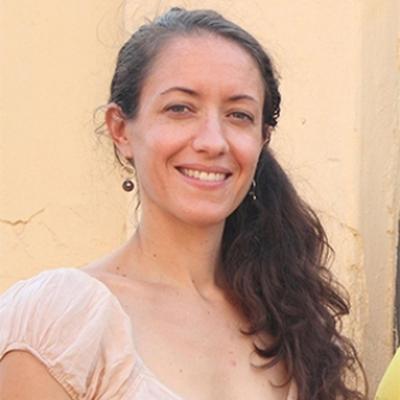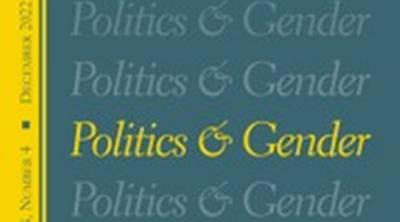The moral intersections of gender justice in post-revolution Sudan
Sometimes a cause worth fighting for seems so self-evident that is difficult to see how any other moral arrangements could be tolerated.
Such is the challenge of “gender justice” activism seeking to dismantle patriarchal Muslim values in the Sudan, following the 2019 revolution and overthrow of Omar al-Bashir and the Ingaz, the popular label used for the Islamist regime and its claim of a salvation mission. Yet gender justice is not a neutral goal, nor is the process of achieving it driven by objective criteria. It is one of multiple and competing claims for autonomy and self-determination that have defined post-colonial struggles in Africa. While Western-oriented feminist activism has steered the position of civil society organizations towards international conventions which place the individual as the rights bearing entity, little attention has been paid to forms of gender justice that non-elite, non-Arab and non-Muslim women may seek – or that may not value the liberal ideals of autonomy and self-determination for women.
Yet gender justice is not a neutral goal, nor is the process of achieving it driven by objective criteria.
During the Ingaz, and to some extent, long before, Islam was used to justify a number of legal and social inequalities linked with women’s self-presentation in public and domestic role in marriage, as well as the privileged status accorded to Arab and Muslim identifying groups and persons. A Sharia-based ‘whole way of life’ was both prescribed and policed, disadvantaging those who did not fit this model for a nation, morally, racially or historically. Today, with a view to transforming the state, international women’s rights agendas, concerning SGBV redress, will not only face calls for recognition of individual women’s rights’ over their bodies, but also claims by ethnic groups for self-determination under customary norms, in addition to an obdurate moral emphasis on the value of the patriarchal unit – the God-given rights that a husband has over his wife, under stricter interpretations of Islam and Christianity.
A Sharia-based ‘whole way of life’ was both prescribed and policed, disadvantaging those who did not fit this model for a nation, morally, racially or historically.
From a criminal law perspective, this legal pluralist situation is critical: for example, how can women seek justice for SGBV in a situation where violence outside the marriage previously fell under statutory Criminal Law, violence within marriage was dealt with by Marriage and Family Law, and yet for Nuba ethnic minorities such as Moro, violence in the family fell under “customary” communities’ own ethno-religious norms. Matters of “personal” status (marriage, divorce, inheritance etc.) were relegated to the respective customary norms under traditional and religious authorities based in a theocratic model where ethnicity, religion and law were inseparable. The state therefore did not officially concern itself with the rights of women in non-Muslim and/or “traditional” communities such as Nuba groups, but it does concern itself with any purported crimes against the state, or public morality under 1991 Criminal Law.
Nuba Moro Christian women are not only women, and Christian, but also Black-African-identifying persons from an ethnoreligious minority, a social positioning which has disadvantaged them greatly under the Arab-Muslim regime, while also affording them a measure of legal autonomy and flexibility. For Moro, Christianity is particularly powerful and all-encompassing, participating in an identity construction that is opposed to that of the Arab-Muslim identity dominating the government and the economy. I have analyzed this movement as a highly politicized form of religiosity, since it arose in conjunction with or opposition to the Ingaz regime, perpetuated by Moro Christian leaders across seven denominations as a form of theocratic government independent of the state appointed traditional leaders, Native Administration. Thus, Moro feminist activism has rather oriented towards a restoration of ethnic community values through Christianity, rather than seeking to undo patriarchy. While Moro customary norms are still dominant social structures which Moro refer to for matters of marriage, divorce and family, Christian leaders are usually consulted for jurisprudence so Christian law intermingles with customary law, even in cases of community-internal violence.
Thus, Moro feminist activism has rather oriented towards a restoration of ethnic community values through Christianity, rather than seeking to undo patriarchy.
And yet, what was considered “criminal” and therefore subject to statutory Sharia was not always clear cut, since the moral and legal structuring of violence differs under secular or religious or ethnic group norms. Criminal acts can be located across multiple targets for self-determination. For example, murder is entirely unacceptable across these four arenas for defining violence in Sudan. However, while murder is intolerable, it is a “crime” against different parties. So, under SGBV, it is a crime against an individual, while under Moro custom, it was a crime against an entire clan, and the offending party had to relocate his entire patrilineal clan unit in the Mountains. No one today would expect that a murderer could get off that easy, with the overwhelming presence of the state. However, when it comes to the minutiae of acts that can be classified as forms of sexual violence, it becomes trickier.
For example, whereas marital rape under international norms would classify it as a criminal act, under Sharia in Sudan the marital unit was always off-limits to state accountability, and to the possible intervention of the law. Although, ironically, proof of domestic violence could be used as evidence in divorce proceedings under Muslim Family Law. Protection for children against rape in Sudan is much more elaborated than protection for women, again, showing the moral centering of the family above that of the individual adult woman. Abortion is criminalized and, according to a recent study, politically and socially among Sudan’s Arab and Muslim elites it has been strongly associated with sexual relations before marriage, a moral crime punishable with whipping. In Moro customary practice, abortion may have been perceived as an offense against the ancestors of a clan, but the choice of whether to abort or not was a relatively pragmatic one, since having a child outside of marriage was not a moral catastrophe. In fact, it was and still is fairly common, even expected, that a young woman would bear one or two children before the conclusion of her marriage through a final transfer of bridewealth.
Only within the last thirty years or so, are moral prescriptions from Christianity imposed on young couples, forbidding extramarital sex and pregnancy. I heard one preacher in the Episcopal Church of Sudan liken a woman engaging in sex outside of marriage as a vendor of zalabia ‘doughnuts’: as she cheapens herself like a market tea lady. Another pastor whose daughter was identified as “guilty” of the crime of adultery, in his public shame, advocated for her to be stoned. Although this did not happen, the Moro Christian moral discourse almost entirely imitates the Sharia-prescribed behaviors and punishments for women as crimes against the state and against public morality, rather than a private affair. Moro had taken up a parallel moral line, albeit Biblically, in the context of the ethnonational movement.
Only within the last thirty years or so, are moral prescriptions from Christianity imposed on young couples, forbidding extramarital sex and pregnancy.
Neither the liberal feminist notions of moral autonomy, nor the collective self-determination of the Moro community can bargain with the persuasive power of the religious moral emphasis on the marriage and family unit. This emphasis paradoxically both enables and precludes access to justice for Moro women. For example, my research showed that women who succeeded at divorcing their husbands, often based on claims of domestic violence, do so not through customary law, but through statutory Sharia, where darar ‘violence’ and failed nafaqa ‘financial support’ were grounds for divorce. In spite of prevalent domestic violence, divorce is almost impossible through customary courts, as well as through the Church, which forbids it altogether. Customary courts emphasize a husband’s rights over his wife through the exchange of bridewealth, a sum formerly proffered by the patriarchal unit, thus ensuring the entire unit’s rights over the bride and her children. And yet, women with the know-how and the financial means, could seek divorce through the court of non-Muslims, where both Christian and Muslim judges, “thinking Islamically”, can issue a statutory divorce. By this, the judges whom I interviewed meant that they were thinking about the relations of mutual responsibility within the family unit, not that of the larger family. Moro women who divorced their husbands invariably claim injustice based on their husbands’ inability to support the children and that he beats her, while she dutifully works, cleans, cooks and clothes her children. These women most often were tea ladies who earned up to four times more than husbands, spoke Arabic well, and were street savvy. Customary law would be hard pressed to recommend a separation based merely on domestic violence. The Christian pastors might counsel the couple to work on a more harmonious relationship through talking. So Sudanese family law has been beneficial to women when customary law failed them, and when violence coming from within the marriage could be put forward as a justification for separation.
In spite of prevalent domestic violence, divorce is almost impossible through customary courts, as well as through the Church, which forbids it altogether.
In a counter-example, Sharia law inscribed in the 1991 Criminal Code, did not favor women experiencing sexual violence, especially Nuba women, due to widespread stereotypes about loose morality. As said above, in Moro custom, before Christianity and Islam, sex before marriage was common, even important, as was giving birth to one child before marriage to ensure fertility. While adultery is not acceptable, especially for highly Christian people, Nuba are nonetheless stereotyped as being “available”. This, coupled with socioeconomic inequality, placing them in informal work sectors where SGBV is common (selling tea, house cleaning), they are more vulnerable to violence. However, addressing this under Sudanese Criminal Law was dangerous, to the point of being generally avoided altogether. This is because sexual violence, namely rape, was prior to 2015, defined as a form of extramarital sex, or zina ‘adultery’. Zina is punishable by stoning to death, or 100 lashes, if the woman is unmarried. Nuba women who experienced violence outside of marriage can be incriminated, if they cannot prove that she was unwilling – four male witnesses and evidence of beating. As marital rape is not criminal under this law, the value of the patriarchal unit is again prevented from outside intervention.
While domestic violence is grounds for women’s access to justice through divorce under the Marriage and Family Law, sexual violence is not easily grounds for access to justice under Criminal Law. Widespread misogynist biopolitics entrenched in the legal system, and society generally, depict women as incapable of moral decision-making, thus needing either protection within marriage or disciplining without. Gender justice for SGBV in its individualist and Western fashioning cannot account for the moral arrangements for women and the families and communities they live in – especially when such a focus on women’s autonomy threatens both the patriarchal family structure, and the broader ethno-religious community’s own claims for self-determination.
While domestic violence is grounds for women’s access to justice through divorce under the Marriage and Family Law, sexual violence is not easily grounds for access to justice under Criminal Law.
In spite of the complexity of intersecting moral arrangements, Moro women were highly aware of these plural legal structures, whose interests they serve and how to navigate them. An intersectional framework brings forth the political contexts in which these norms have emerged, and why they may seem to conflict, but also how they can be maneuvered in a productive way. As Sudan faces the tedious democratic work of transitioning out of Sharia rule, these knowledges, and the moral orders that frame them, should be taken into account in the negotiations over secular reform.
This Sudan blog post is written by Siri Lamoureaux. She is an anthropologist and a member of the Lost Research Network. Lamoureaux is assistant professor in the Sociology Department at the University of Siegen.
The views expressed in this post are those of the author, and do not necessarily reflect the opinions of the ARUS project or CMI.









